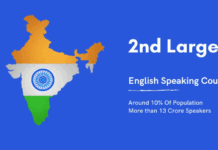The struggling journey from Manasi to Somnath.
Bengal’s first struggling transgender women college principal.
Most often, if academic establishments in West Bengal’s Nadia district realise mention within the newspapers, it’s as a result of they need intimate violence throughout student elections . But 6 years before it was an exceptional case for few days. Krishnagar Women’s school has been crowded by the media for quite a completely different reason: its new principal, Manabi Bandopadhyay, India’s first transgender women and also first transgender college principal.
It hasn’t been a simple and easy journey at first. Born as Somnath Banerjee, Manabi Bandopadhyay told in an interview regarding the taunts she received from her conservative father and widespread ridicule from others around her. “I was a woman at home however once out on the streets I had to wear trousers and shirts and behave sort of a man,” she said. “It was tragic and humiliating, but I had no option.”

Believing that her entirely path to respect lay in lecturers, Bandopadhyay targeted single-mindedly on education. An amendment operation in 2003 finally allowed her to embrace her attribute. She took a replacement name, Manabi, which implies “beautiful woman” in Bengali. Bandopadhyay completed her MA in Bengali and became the first transgender person from state to complete Phd. In another first, she became West Bengal’s first transgendered academian once she joined Vivekananda Centenary faculty in Jhargram as an educator among the late Nineteen Nineties. They weren’t willing to settle her as a girl and asked her to register as a male lecturer.

In 1995, she achieved another initial of sorts – she wrote India’s initial transgender magazine, named Ob-Manab (Sub-human). She explained the principle behind the name in a very notable newspaper. As per her “If I had named the magazine Maha-Manab (Great humans), would there have been any changes in the approach that the transgender community have faced? I named the magazine in tune with howsociety treats transgendered folks – sub-humanly. If they weren’t treated like sub-humans, would I even have been needed to publish a magazine for them?”
“There was a time when I used to ask myself, what is wrong with me? Why every bone in my body cries out to be a woman?” she says. Decades later she gathered the courage to stand against ta biased society and listen to her heart, not her brain and and constructed a body which her soul wanted to be.
She required surgeries and prolonged endocrine treatment for that to happen.At the end of the treatment, once she looked herself within the mirror she was satisfied and fell in love with herself .She braced for stunned gasps, eye rolls and smothered laughs that were to greet her freashly.

I have been quite the head-turner, you know,” she says with fun. Faculty in the sleepy-eyed government faculty she had worked for eight years before her sex-change were distressed regarding “which toilet I ought to be allowed to use”. People who before threw words like ‘woman’, ‘girl’ at me as if they were insults suddenly gave the impression to be convinced that i used to be a man. which I ought to behave and dress likewise,” she adds.
But acceptance came from the unlikeliest quarters. “Call it tolerance or broad mindedness, my students appeared softer in my saree-and-salwar-kameez avatar. Perhaps, the make-up looked higher on Pine Tree State,” she says.
Bandopadhyay also discovered the paradoxes of social conditioning after her sex change. “All my life, I used to relate t the world like David Copperfield used to do with Edward Murdstone . In my imagination, very few people could break out of the prototype, and struggle seemed to come only my way,” she says

And what regarding the overall perception on the road that transgendered folks ar “loud” and “obscene”? Bandopadhyay had a prepared reply. “Well, ‘loudness’ could be a relative term,” she said. “An atheist may examine a gaggle of spiritual folks and surprise why they’re singing. Because the society has tortured them for so long, their freedom looks ‘loud’ now…”
When Manabi Bandopadhyay started working in Krishnagar Women’s College on Tuesday, lectures and students lined up to welcome her with sweets and gifts. It had been quite an distinction to the hostility that had greeted her in her first job.
Read more articles at : https://www.unveil.press/prostitution-and-the-life-of-prostitutes/














































